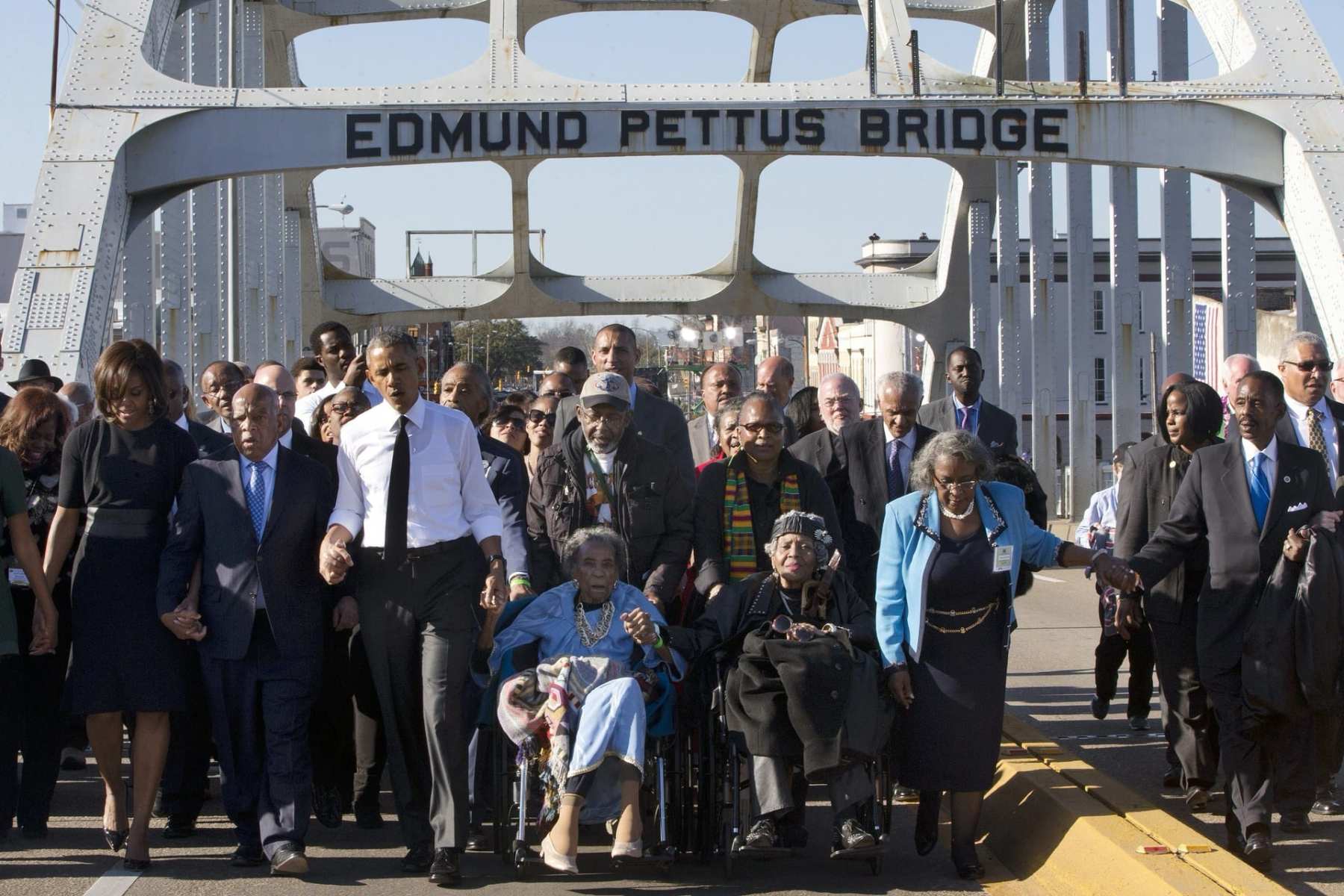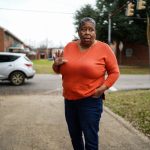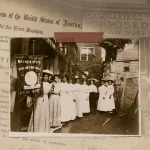An Alabama state senator plans to introduce legislation next month that could let the citizens of Selma determine whether and what to rename the Edmund Pettus Bridge, a symbol of racism that was transformed into a beacon of democracy during the civil rights movement.
The violent events of March 7, 1965 — when peaceful, mostly Black protesters pushing for voting rights attempted to cross the bridge en route to Montgomery and were beaten and tear gassed by Alabama state troopers — were the catalyst for the passage of the Voting Rights Act later that year, which allowed millions of Black Americans to exercise their right to vote.
State Sen. Malika Sanders-Fortier said in an interview with The 19th that the bill, which she said she will introduce in the upcoming legislative session, would be a first step toward fostering an honest dialogue around a divisive and complicated history.
“We are at a moment in our history where it’s become pretty clear that the idea that someone has to win and someone has to lose is failing in our society,” said Sanders-Fortier, the daughter of civil rights activists in Selma who were the founders of the National Voting Rights Museum and Institute and the city’s annual Bloody Sunday commemoration.
“We want to create processes around looking at changing the name of the Edmund Pettus Bridge where everyone is listened to and heard. There’s some tearing down to do, but what Selma is looking to do right now is about building up.”
In 2017, amid a push to remove the names of those who fought to uphold racist structures in society, the Alabama legislature passed a law requiring local governments to obtain state permission before moving or renaming historically significant buildings and monuments dating back at least 40 years. Sanders-Fortier’s legislation would seek that permission.
Sanders-Fortier said a number of state lawmakers have signaled openness to supporting the bill, which would not rename the bridge but would leave the decision to the city’s legislative delegation. She said support in Selma, among both Black and White residents, for a new name has been growing in recent years.
Pettus was an Alabama senator and grand wizard of the Ku Klux Klan. The bridge was dedicated in 1940, nearly three decades after the Confederate general’s death, and was among the monuments and buildings named for racists with the intent of upholding white supremacy and intimidating Black residents.
Some, including the state’s congressional delegation, have advocated that the bridge be renamed for the late Rep. John Lewis, who died in July and who was beaten nearly to death on Bloody Sunday. Lewis became a champion of voting rights and fought voter suppression until his death, returning regularly to Selma as a reminder of the battle and unfinished work of democracy.
Rep. Terri Sewell, the lone African American and Democratic member of the state’s congressional delegation, represents Selma and last year for the first time publicly supported renaming the bridge.
“What was meant for evil, God used it for good. I truly believed that I still believe that, but I also know this moment requires us to see things, do things through an anti-racist lens,” she told AL.com.
It is unclear whether Selma residents want the bridge’s name changed, or to what, but Selma’s local government recently held town halls and conducted a resident survey that led to proceeding with the proposed legislation. Earlier this month, the Selma City Council and Dallas County Commission voted to make Selma the country’s first “Beloved Community City,” named in honor of Martin Luther King Jr.’s vision of a racially equitable and harmonious society.
Sanders-Fortier noted that as the country marks the King holiday in the midst of racial violence and a divided democracy, reckoning with an important symbol of the state’s history feels timely.
“When everybody’s convinced that they’re right, that exacerbates tension. Dr. King clearly wanted us to move towards a different way of resolving our issues. He asked us, ‘Chaos or community?’” she said, referring to the subtitle of King’s last book, “Where Do We Go From Here?”
“We celebrate his birthday in the midst of chaos,” she said. “Selma is saying we want to be a beloved community.”






